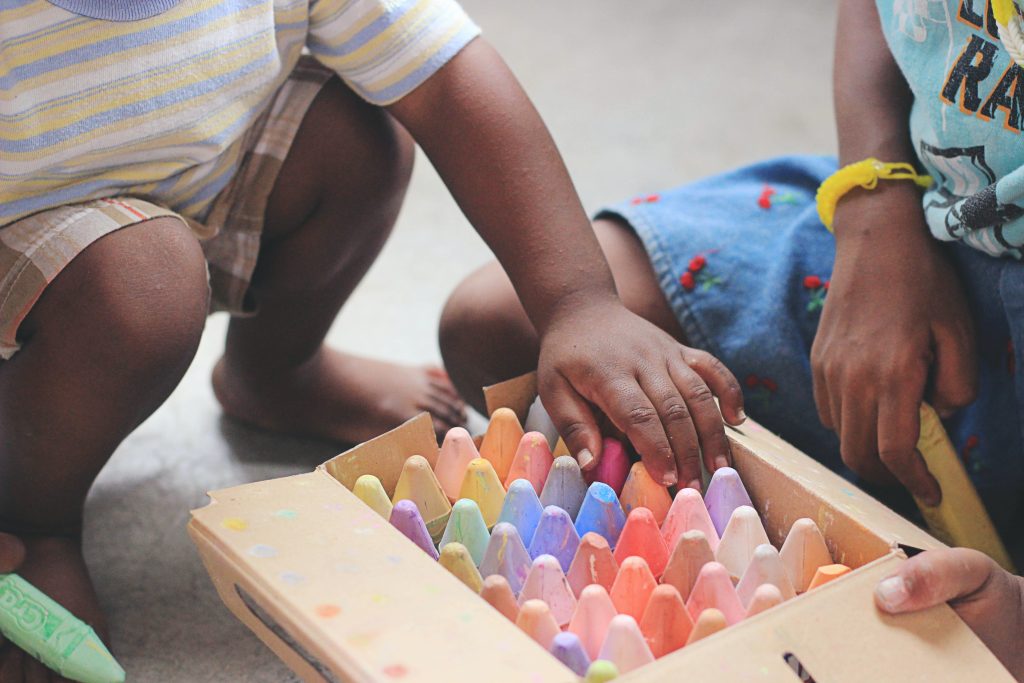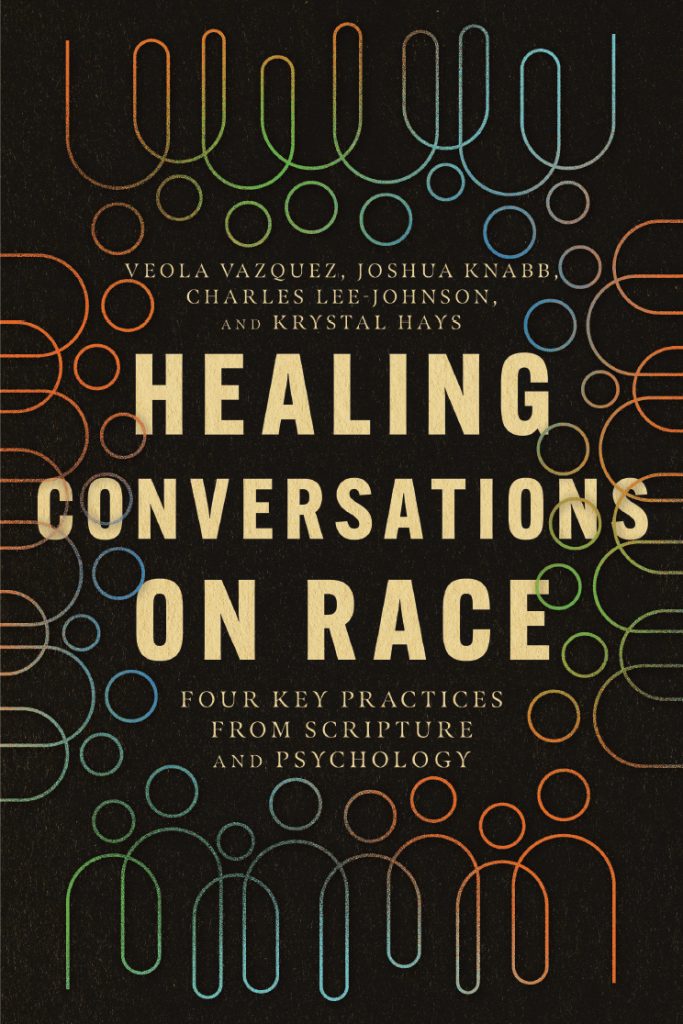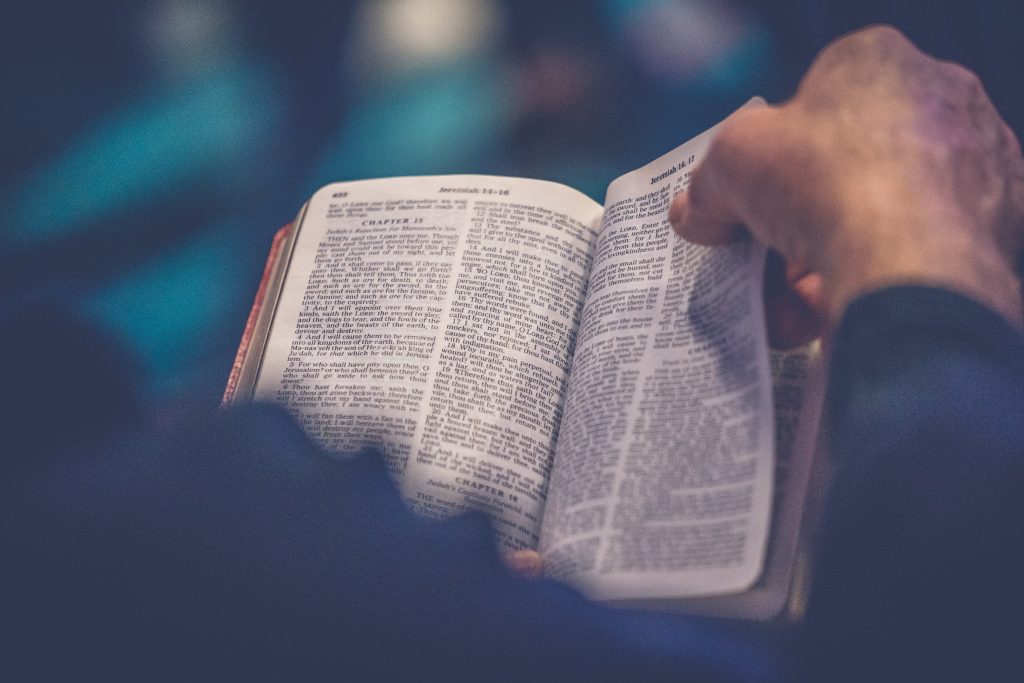Healing Conversations on Race: Love
This is Part 4 of a 4-part blog post.
Read Part 1: Black History Month: A Call For Healing Conversations
Read Part 2: Healing Conversations on Race: The Role of Empathy in Building Christlike Racial Unity
Read Part 3: Healing Conversations on Race: Acceptance
We sat around the dinner table on a typical weeknight; my husband, myself, my 10-year old daughter, and my 7-year old son. We were probably eating pizza or Chinese food (I can’t remember). As we watched the evening news a commercial came on advertising an upcoming documentary special celebrating Black History month. In just a few moments the trailer for the program highlighted slavery, the civil rights movement, and the Jim Crow era. My son turned to me and asked “Why do White people hate Black people?” Then my daughter chimed in “Yea, why do White people always try to kill Black people? Why are they so mean?” I was frozen and didn’t know what to say. I planned on having a simple dinner not answering deep sociological questions from a 7- year old. This was a painful question to answer because, based on historical and current facts, I could see why they would conclude that White people must hate Black people. What other conclusion could they draw about slavery, segregation, or the murder of George Floyd? However, I didn’t want them to believe that ALL White people are hateful and violent towards Black people. I needed them to feel hopeful and believe that the “arch of the moral universe is long but it bends towards justice”. What my children were experiencing is what some scholars call intergenerational racial trauma. Although my children have not experienced racism directly, and live in a very racially diverse and loving environment, they still feel the sting of anti-black racism in society.

As I sat at the table searching for a response to my children’s questions I thought quickly back to the book my colleagues and I wrote; Healing Conversations on Race. The chapter I spent the most time writing was about Love. In this chapter, we suggest to readers that the love of God and love of others is a commandment. Also, Christlike love should be demonstrated through actions that exemplify the nature of Christ. Further, we have both an individual and collective responsibility to demonstrate Christlike love in all our relationships. It is critical to recognize that Christlike love is incompatible with racial disunity and racism. As we move closer to consistently living a life that demonstrates Christlike love we should be compelled towards a pursuit of racial unity.
So I said to my children “Do you think it’s true that ALL white people hate Black people?” “What about your best friends Jennifer and Conner?” “What about Aunt Alice?” “Do they hate you?” These were all people who are very close to our family and love them dearly. They also happen to be white. We started a conversation about what love looks like and how it’s impossible to hate someone and be violent toward them if you truly love them. We talked about the ways our white friends demonstrate their love towards us. As we had this conversation, I could see their wheels spinning and see them begin to develop discrepancies between the hate they saw displayed in that commercial and the love they experience in their lives.

The experience my children had was one I pray more Christians have. The Healing Conversations on Race book helps Christians have these kinds of conversations. In the book we teach that God hates sin, racism is a sin, so God hates racism. The book guides us to see how our life experiences, relationships, and internalized narratives have led us to have beliefs about folks who are racially different from us. Many times these beliefs are inaccurate and inconsistent with scripture. We suggest that love is not a cliché or ambiguous feeling and the Bible teaches us what it looks like to really love others. We suggest that love is displayed through Christlikeness, humility, and self-sacrifice. We teach that love is incompatible with racist thoughts, behaviors, policies, and societies and loving conversations can bring healing.
My children are still young and will continue to wrestle with understanding race and racism. Our brief dinner conversation does not negate the reality of racialized hate in this country. However, I hope that our conversation helped them to think more deeply about their relationships and the ways they can engage with white people (and others who are racially different) in a way that draws them into loving, Christlike relationships. My hope for them, and for you, is that we can practice humility, empathy, acceptance, and love that drives out hate and racism and brings us closer to unity in Christ. This is very challenging work. However, it’s through intimate relationships with those who are racially different that we can have new experiences and rewrite narratives. It’s through these relationships that God will convict, and draw to repentance, those who harbor racial hatred or complicity towards racial injustice. Ultimately, I pray that through this approach we can HEAL our racial wounds and truly be the body of Christ that God desires us to be.

Photo by Rod Long on Unsplash
Thank you for following this blog series and I invite you to take the next step. You can visit our website to learn more about the book and how to begin the HEAL journey. We believe that reading the book will give you the foundational knowledge and skills necessary to engage in a real conversation with a racially different brother/sister in Christ. We are confident that taking this important step will move you as an individual, and the Church as whole, closer to racial unity which is consistent with Christlikeness. Through this process, Christians stand to be a shining example of the transformational power of Christ by demonstrating a solution to the racial disunity and racism that plagues our society.

This blog is the final of 4 in our Black History Month Blog Series for 2023. Check back each Wednesday of February for more on how to have healing conversations. CBU Students who comment on these blogs will have a chance to receive a copy of the book. Winners will be emailed in early March. Listen. Learn. Engage.
References
This blog is the first of 4 in our Black History Month Blog Series for 2023. Check back each Wednesday of February for more on how to have healing conversations. CBU Students who comment on these blogs will have a chance to receive a copy of the book. Winners will be emailed in early March. Listen. Learn. Engage.
Dr. Martin Luther King Jr., “Remaining Awake Through a Great Revolution.” Speech given at the National Cathedral, March 31, 1968. https://kinginstitute.stanford.edu/king-papers/documents/remaining-awake-through-great-revolution-address-morehouse-college
Wyatt, T. R., Taylor, T. R., White, D., & Rockich-Winston, N. (2021). “When No One Sees You as Black”: The Effect of Racial Violence on Black Trainees and Physicians. Academic medicine, 96(11S), S17-S22.
13 Comments
After reading this post, it saddens me to know that your children asked that challenging question. Because of our broken world, our society has gone to a assumption that as a collective whole, all White people are racist and they want to hurt Black people. I am actually in the Race and Ethnicity course with Dr. Charles Lee-Johnson, who also happens to be an author of your book. We are required to read this book for the class and it is a fantastic read. That class has been amazing an it has been really enticing studying race and culture. It saddens me to know that we have to make a class on this because of the history and background that has happened, but the class is amazing and truly a life-changing course. Growing up as a person of color in a neighborhood of majority Caucasians, I had some experiences where I was uncomfortable or somebody was say something racist under their breath. But, I kind of just brushed them off as I knew that it was something bound to happen just because I looked different than mostly everybody else. Now that I am more grown up, it just makes me so sad and disappointed in this world of making stereotypes about certain races and cultures. I have embraces my culture more and in return, have done a better job of accepting other cultures. I want to try and do a better job of educating myself not only on my culture, but of other ones too. This was a great post to read and I recommend the book to anybody of any background.
“arch of the moral universe is long but it bends towards justice”. Is such a powerful statement. I think that people should also draw attention towards the next generation. It is so easy to blame and hate on evil but since that has not been quite successful, I think it is important to teach younger children love, empathy, kindness, and humility. Giving the next generation focus and attention towards this can lead to a shorter arch of moral universe, it will quickly bend towards justice for sure.
Overall, this blog post about having those harsh but necessary conversations about race was very stimulating for me. Whenever I hear a story about a child pondering why race issues exist, my mind always shifts to the Doll Experiment by Kenneth and Mamie Clark. Their experiment explicitly showed us that racism is internalized at a very young age, so it is important to have those racial conversations early on. Also, I applaud the way that you refused to demonize the whole race of white people. I find that many African Americans demonize and generalize our hatred and it makes us no better than our oppressors because we then are demonstrating a lack of Christlike love, which is what we have been craving for generations. Once again, great post!
This is a blog that I feel everyone should read. We live in a world where even I question why there is so much hate toward BIPOC. It is to the point where it angers me to even think about how they have been treated throughout the years. A few years back, I would call you crazy if you told me I had to show love toward those who hurt us. It takes a strong person to show love to those who have hurt us. Yet, showing love like Jesus is a teaching that the Bible emphasizes. It is important that love is practiced in order to begin to drive out hate and racism while bringing us closer to Christ. As we learn this ourselves, it is important to teach our children and the younger individuals that surround us. That way, we can be the change that we want to see in the world.
Brianna,
Thank you for sharing your thoughts on love and its importance in fostering healing conversations on race! I agree that love should be practiced to help counter human emotions and thoughts that lead to discrimination and racism.
Dr. Krystal Hays,
Reading about how a conversation can go like this in a family was very insightful. I understand it can be difficult for kids of color to understand racism. You explained it best by letting them know what love looks like in different situations. Love has been taught to us constantly and can be easier to comprehend since it’s a positive feeling. Taking the world’s love and using actions from the Bible can make it even more understanding because you mentioned loving one another is a commandment. With God’s definition of love, we can show kids what it truly means to be loved by someone else, especially in this unjust society.
Juliana thank you for engaging with this blog on love and healing conversations on race! God’s definition and demonstration of love should definitely guide our minds when practicing love even in difficult situations.
Thank you for providing this series of posts and addressing the true message of Christ. Love is the defense against racial hatred, and all children should experience interracial love. I think proximity and lived experiences are the best way to bridge the gap and teach people how to truly love everyone. Many Christians fall into the category of being tolerant, but not truly practicing love. They may not be racist or hateful to others outside their race, but they are also not able to show love because they remain in spaces that isolate them from diversity and integration. Love requires us to enter spaces of multiculturalism and intentionally express love to those of all races and ethnicity. Again, thank you for your insightful and enlightening posts and the emphasis on God’s love at the center of it all.
Grace, thank you for taking the time to read and reflect on the topic of love in relation to healing conversations on race! I agree that identifying between tolerance and love is needed as love requires humility and empathy and not just a surface level of acceptance.
Thank you for your insightful post. I admire the way you handled the questions your children had. Racism is an issue that many have experienced or know of loved ones who have. The acknowledgment of explaining to them that white people are their friends or family that love them, not hate them. I have noticed those who are racist come from an environment that allowed them to think this way of others. I agree that acceptance, love, and empathy will drive those racist ideas and thoughts away.
Thanks for sharing your thoughts about this difficult and important conversation.
After reading this article, I realized my future can look like this. I can be having dinner with my husband and children and they can be asking these questions, that I don’t know much information about. I am married to an amazing Black man and we are raising a beautiful daughter. I am a Latina woman, I wasn’t raised the same, we did not go through the same struggles but I am learning more and sensitive to this topic! As a mother I want to do everything to protect her, but I know there will be somethings she will go through that I will never understand. This article opened up my eyes to see more clearly, I need to inform myself and speak more about the struggles and Black history if I’m going to raise Black children.
Thank you for sharing, Julissa! It is very admirable that you not only recognize the areas where there is room for growth but also the desire to learn more in order to better care for your daughter!